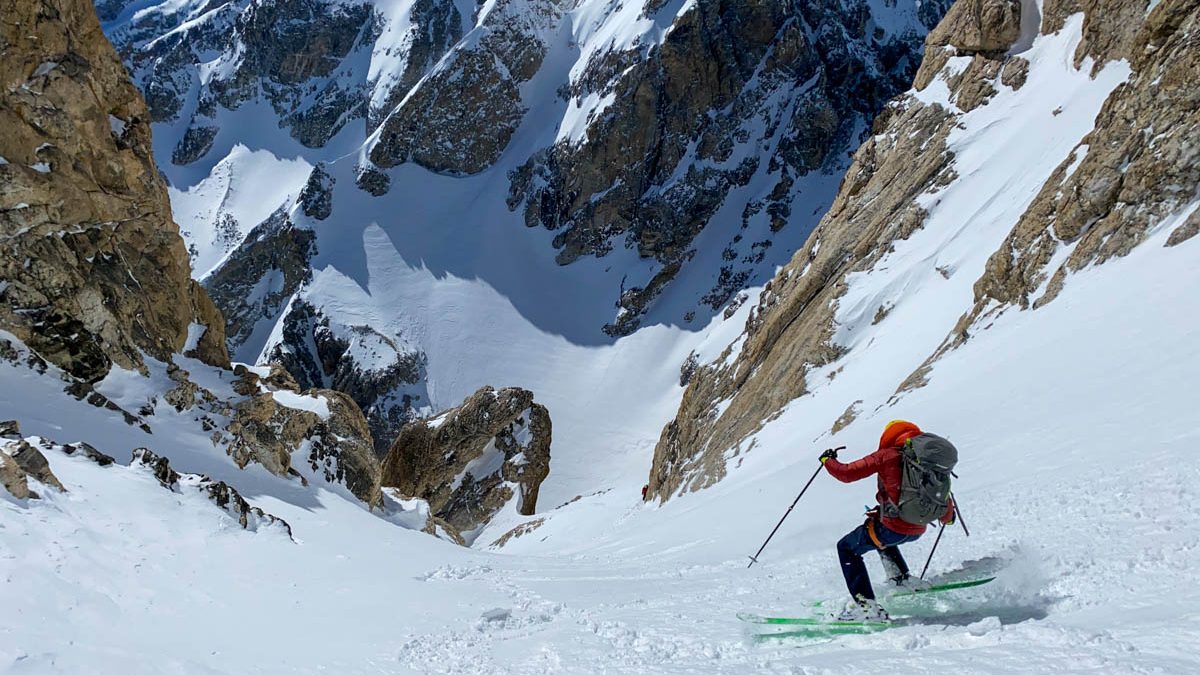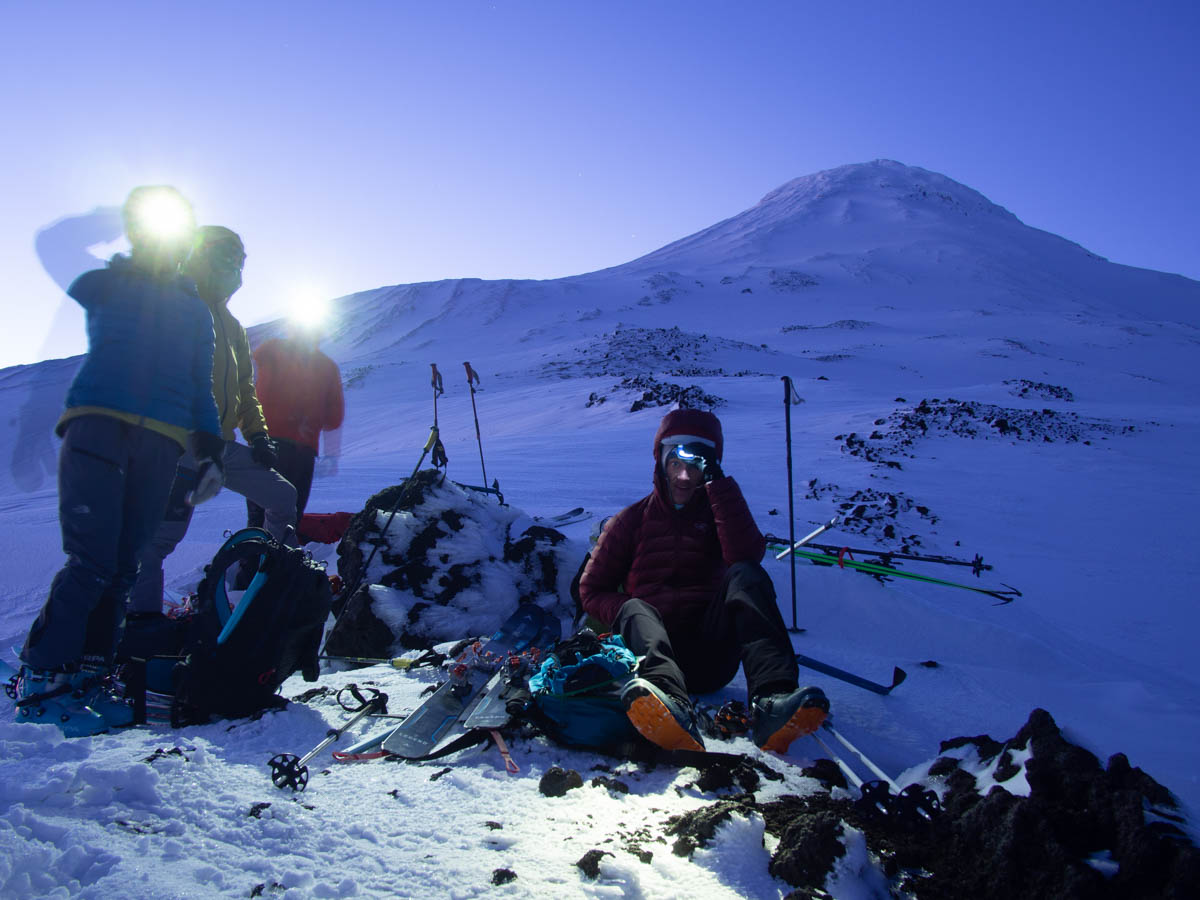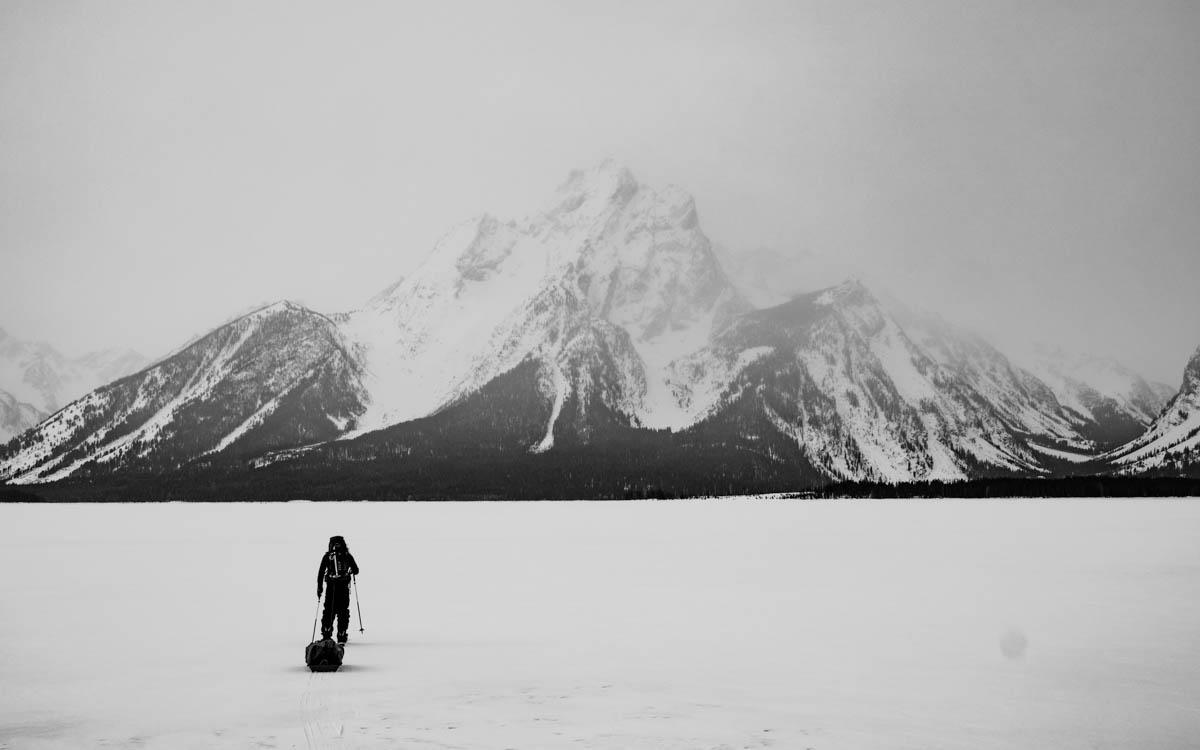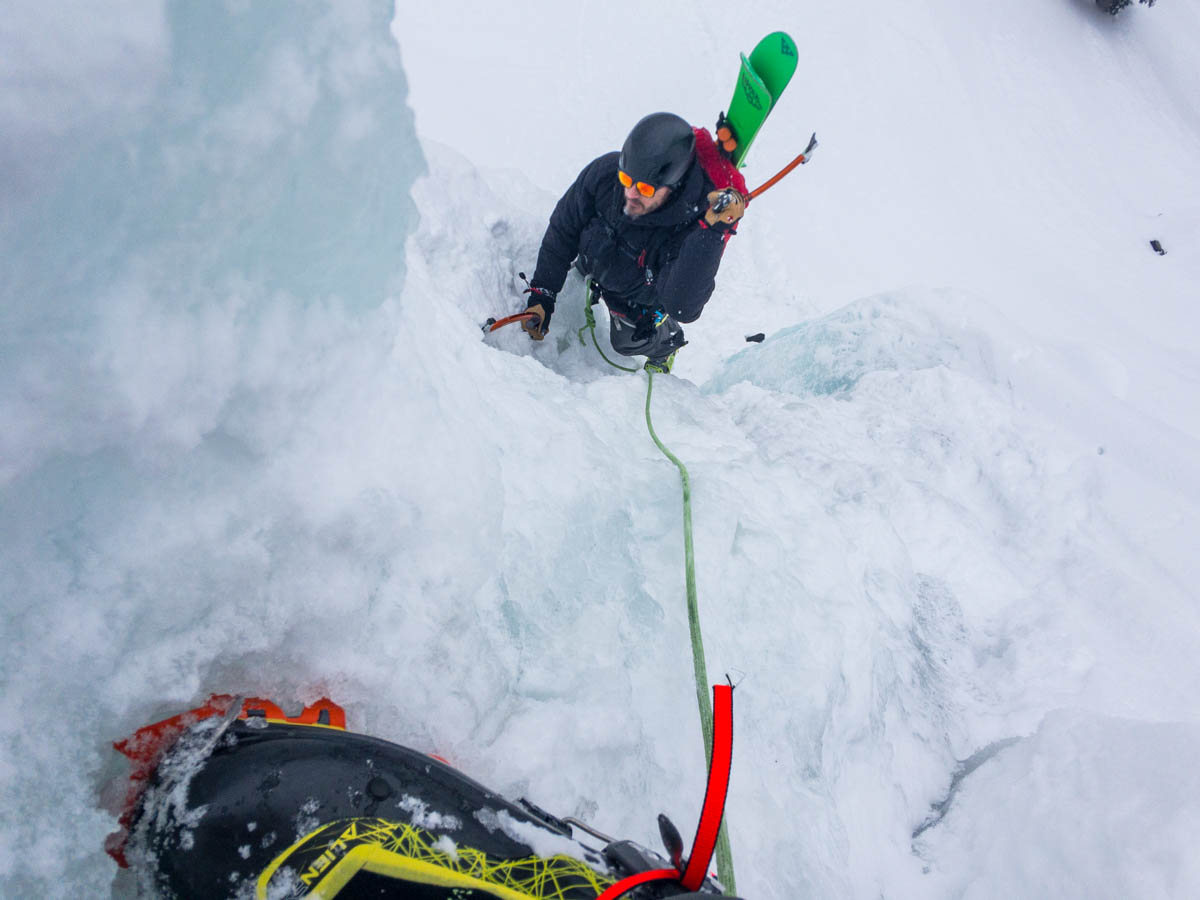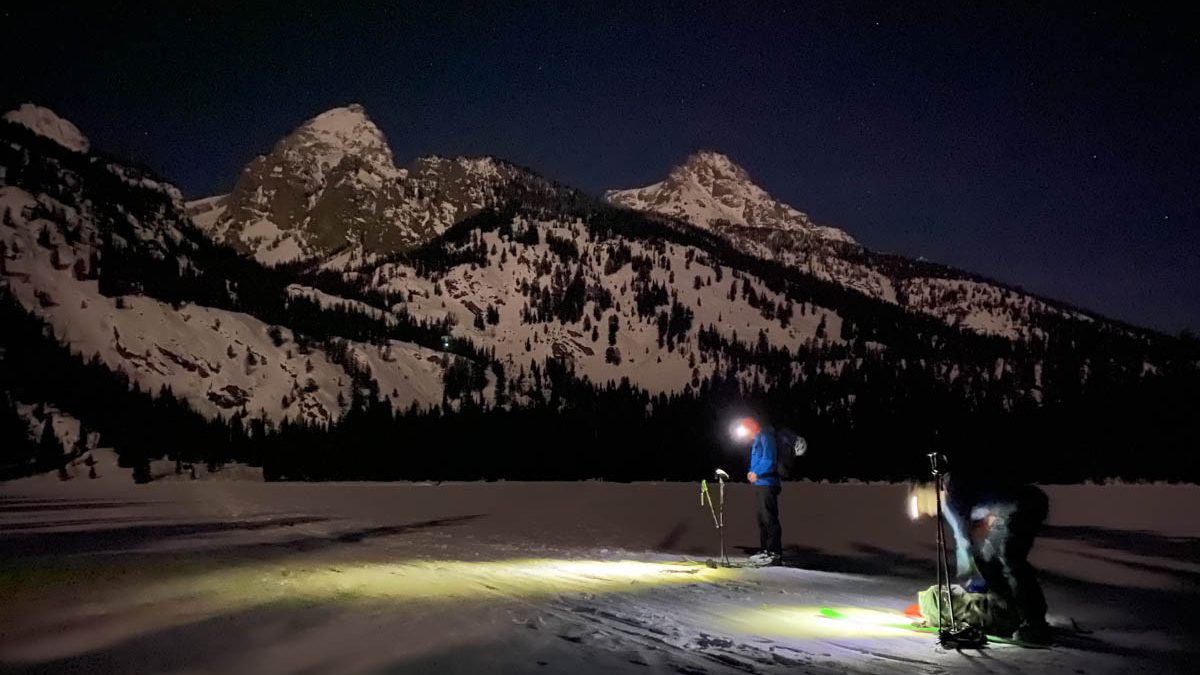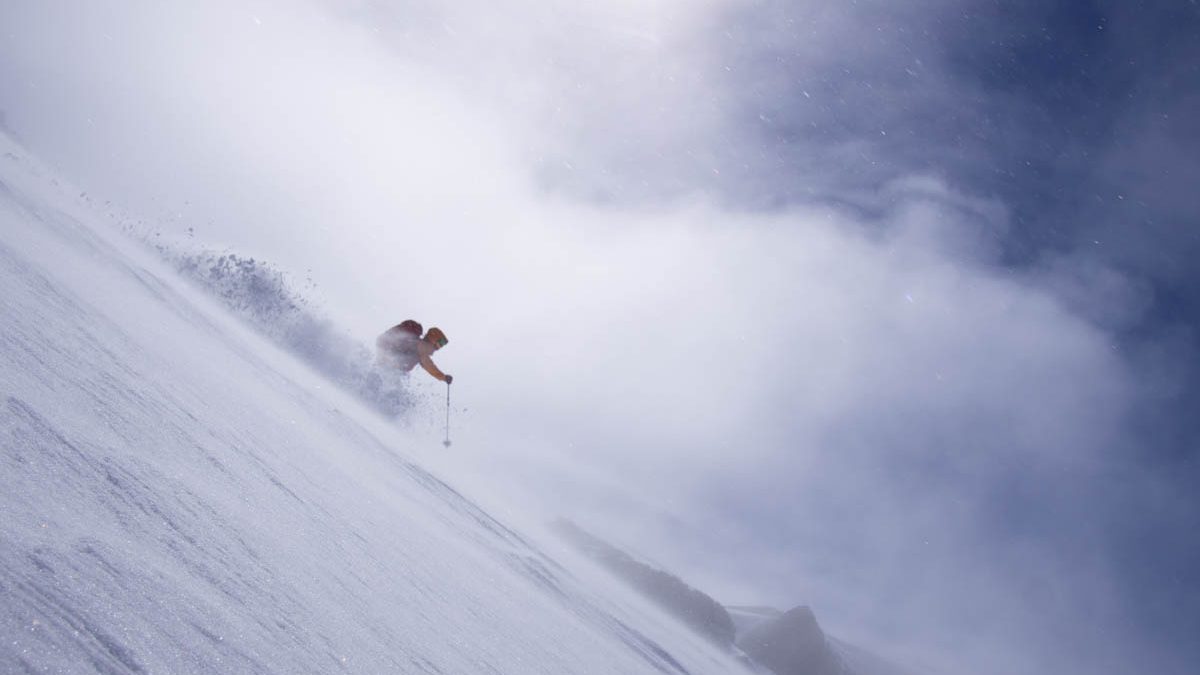Editor’s Note: Last winter while visiting Courmeyuer, Italy, I had my first experience being ski guided. It was, to say the least, delightful. On the list of why I hadn’t hired a guide before is 1) I’m cheap, and 2) I suppose I thought I should already ‘know things’. So I asked guide and regular WildSnow contributor Jed Porter to pen something up from the guide’s point of view on what a guide can offer. What he came up with is even better. Read on.
Almost a year ago now Manasseh asked me to write an article on “why to hire a guide”. I was immediately self conscious about that task. As a guide, reliant on the employment of my clients, how could I write such a thing? What answer could I come up with that, when you drill down, wasn’t any more than “because I have to pay my bills”?
So I surveyed friends and clients and found that I didn’t actually need to write a word. I collected, lightly edited, and organized dozens of responses to that exact question. I’ll let the masses speak now.
Terrain knowledge
In backcountry skiing, hiring a guide who knows the local terrain and snowpack makes a ton of sense when traveling outside of one’s home zone. I don’t always do it, but it certainly can maximize my time when I do.
Guides are paying attention to what’s happening in the mountains all season long, as an individual and operation.
…Access to that institutional depth of current conditions knowledge… to find the goods, and avoid the bads.
More time skiing and less time getting lost in the woods. Guides know the route, and where the best snow is.
I’ve hired guides when I’m a) unfamiliar with the region b) unfamiliar with the snowpack (in the sense of not having watched it progress over a season, I find that day to day layering of info really valuable) and c) when there is no avalanche information available for a region. If 2/3 of those are present I’ll likely use a guide and if 3/3 are present I’ll almost certainly use a guide. I end up mostly using them overseas.
We went on a guided BC trip in the Hakuba region of Japan a few years ago that was excellent. Hiring a guide made sure we maximized snow quality, got us into terrain we may not have known about and helped us be more efficient in all of our decisions. We also got a lot more culturally out of the trip with another Japanese speaker/local guides who taught us cool things about the region, took us to restaurants/cultural sights we may not have found, and honestly guides are usually pretty cool/nice/fun folks!
Efficiency and Value
When I ski with a guide I always end up skiing on good snow and I spend no time on navigation. It’s a somewhat magical experience that can “ruin” unguided BC skiing, but I also learn a lot because I pepper the poor guide with questions.
Try backcountry skiing with an expert on snow conditions etc. before investing the time and money to get skilled yourself. And probably after training too because experience goes a long way…
Wanting to “learn” with a guide — at least for me — ended up being a bit of a gateway drug. Because I can’t really “ignore” the fact — or I’m not willing to — that some of my most phenomenal days out have been with guides. I attribute this to a well-trained guide’s focus on the client experience.
I never employed a guide until last year. But there are some places I really want to ski. And to try and get the same amount of skiing on always the best available conditions and the maximum quantity as well as safety in an area unfamiliar to me is pretty much impossible on my own or with my partners. It’s not that we lack competence. It’s that we lack logistics and local knowledge. I will always engage a guide to make the most of my time and it will be worth it every time.
Investment: If you are spending money on travel, huts etc. and have limited time and high expectations for good skiing, a guide is the surest way to achieve your goals with highest safety margins.
In my professional so-called “real job” at that time I was working for a boss who was a stickler for financial detail. This forced me to think of things in terms of “return on investment”, labor rates, etc. Plus, at about the same time, I was introduced to the idea — through skiing — of myelination: that it’s easier to learn “new” physical movements and have them gradually take over, than strive toward correcting “bad” habits or previous movement patterns. So I started putting 2 & 2 together and realized that my previous orientation toward wanting to “figure things out” on my own was completely illogical. YES hiring a guide is/was expensive… … but my experience is that I literally learn way more—AND—have a great time—than I do when I’m either out on my own or trying to pick things up skiing with folks who are maybe great skiers, but less than ideal “teachers.”
Skills Development
A guide acts like a mentor if you don’t have one. A guide gives you the foundational skills to go out on your own.
Have fun learning from a professional. They’re pretty fun people. Most guides are. Meet someone new, and learn more about what they dedicate themselves too.
I use a guide at least once a year. I like to find ways to use that time to evaluate my skills and progress as well as expand upon my toolbox. This creates a confidence and comfort in my decision making, keeps me in check and allows me to go a little further each year.
My guided experience only involved a little skiing. One of my biggest takeaways from working with a guide is that a perceptive guide, who reads their client well, is able to constructively challenge the client to exceed their own self-perceived limits. Maybe this is kind of on the edge of the work guides do, but I know in my own experience it’s been an awesomely productive and inspiring experience to have my guide push me, premised on his own somewhat more objective read of where my limits really are, and what I’m capable of. They see what we can’t in ourselves, in the context of climbing, skiing, etc.
I’m literally blown away by how much it feels like I’m learning after every experience with a guide. This is a little difficult to describe because it’s not always “and today I learned this, this and that,” as much as kind of an ambient “picking up” of how guides think, move and make decisions in certain terrain, conditions, etc.
I almost always learn something new on every guided trip, from local beta to skinning tips to salty jokes.
Risk Management
When it’s nuking and it’s considerable to high avalanche danger it’s always best coming home to your family and friends. But you also should get turns in. Hire a guide to help choose the best terrain for the day.
Like a hunting guide they know where the game is. And like a hunting guide, the client still might be the better shooter and that’s not a bad thing. Guide does little things so you can worry about the big things like steep skiing.
The most concise way I can respond to this question is as follows: “you will have an amazing day out, learn a ton and — more than likely — not die.”
Partner Availability
Guides can get you the hall pass needed to keep your loved ones happy, knowing you will be in good hands making smart decisions.
It’s excellent if you’re on limited time or in a new zone….plus, right now, I live where the number of BC skiers is pretty small. As folks move up the progression in their skiing and it becomes more remote and/or more technical, skiers who live in places where that community isn’t super big can benefit from having access to guides’ schedules. A guide relationship makes it easier to actually get out as compared to trying to find the very few other people in your community who actually want to ski in the BC…
I’ve hired guides when I’m traveling solo but want to do cool things in the BC!
Go Bigger
I’ve hired guides when skiing in unfamiliar terrain, when on “big for me” trips and for trips and courses focused on training and education.
I’ve hired guides to complete a special project/lifetime goal/trip or objective.
I initially had some “internal resistance” to hiring guides to climb and ski with. I attribute this to the somewhat common tendency (within American culture—since it doesn’t seem this way in Europe) to subconsciously view climbing or skiing with a guide as “not ‘real’ climbing/skiing.” With a good guide and good communication and cooperation with that guide, this couldn’t be further from the truth.
Wrap Up
Back to Jed’s voice now. In closing, I’ll offer some explanatory thoughts and lend further organization to the above.
First, some explanation of the guiding “landscape” in the United States. Any guided experience, anywhere, is an intimate field relationship with an individual or very small team. The best experiences have guides working directly with clients/students, from start to finish and through a collaboration that tailors the entire experience.
I recommend you work directly with a guide from start to finish. You and that guide, in the United States and given our commercial land use regulations, will almost certainly have to work in conjunction with local business partners for commercial land use access. This collaboration can and should start after initial contact between client and individual guide. The guide likely wishes it were different (i.e. that they could operate individually or as a very small business), and many are working to make independent US guiding more feasible. In the meantime, we all are working in various ways within the system and appreciate your understanding.
In short, do what it takes (word of mouth, web search, social media etc) to find an individual guide whose expertise, training, style, communication skill, and terrain familiarity matches what you wish to do. After initial contact with that guide the booking process will likely involve a larger business entity.
On the topic of training and expertise, there is no ubiquitous requirement for mountain guide training and certification in the United States. Throw a dart at a list of US guides and you might get one recognized by their peers and professional organizations or you might not. Caveat emptor. The web is filled with further explanation. If you’re short on time, narrow your search to guides certified by the American Mountain Guides Association.
All photos credited to Jed Porter, and all photos are taken on trips I have guided.
Jed Porter is a passionate adventure skier and all-around mountain professional. His primary work is as a mountain guide, skiing and climbing all over the Americas and beyond. Learn more about him at his website linked below.

